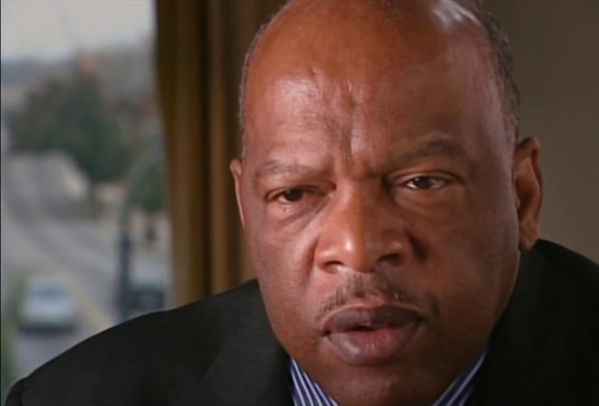A Tribute to the Late Congressman John R. Lewis, A Champion of Nonviolent Resistance
Arguably the most beloved and revered surviving veteran of the modern U.S. Civil Rights movement, John Robert Lewis was a paragon of nonviolent struggles for justice. Between his impoverished, segregated childhood in Troy, Alabama in the 1940s, and his election to the U.S. House of Representatives in 1986, Lewis repeatedly risked life and liberty in a lifelong quest for racial equality. The Georgia Democrat succumbed to pancreatic cancer on July 17.
Noting his intrepid role in the U.S. Civil Rights movement and an unshakeable commitment to nonviolent discipline, former Presidents George W. Bush and Bill Clinton gave glowing tributes to Lewis at his July 30 funeral in Atlanta. Former President Barack Obama delivered the eulogy.

“John Lewis was getting something inside his head, an idea he couldn’t shake that took hold of him – that nonviolent resistance and civil disobedience were the means to change laws, but also change hearts, and change minds, and change nations, and change the world,” said Obama. “He as much as anyone in our history brought this country a little bit closer to our highest ideals.”
Others paying tribute included the Reverend Dr. James Lawson, himself an icon of the Civil Rights movement. It was Lawson who, in the 1960s, infused the movement with “satyagraha” — Mahatma Gandhi’s celebrated techniques of nonviolent resistance.
In a 2018 event marking Lawson’s nomination for the Congressional Gold Medal – one of the nation’s highest civilian honors – Lewis referred to his old friend as “the architect of the Civil Rights movement.” Lewis was a college student when he first received Lawson’s training for the sit-in campaign that ultimately desegregated Nashville’s department store lunch counters.
“John saw the malignancy of racism in Troy, Alabama. There formed in him a sensibility that he had to do something about it,” said Lawson, recalling his protégé’s passion for justice. “I maintain that many of us had no choice to do
what we had to do primarily because at an early age we recognized the wrong under which we were forced to lived and we swore by God….this must end. Black lives matter.”
ICNC is proud to have had the good company, partnership and counsel of both Congressman Lewis and Rev. Dr. Lawson over the years.
Here is a segment of the Nashville sit-in campaign from the award-winning documentary, “A Force More Powerful.” Click here for John Lewis’ remembrances.